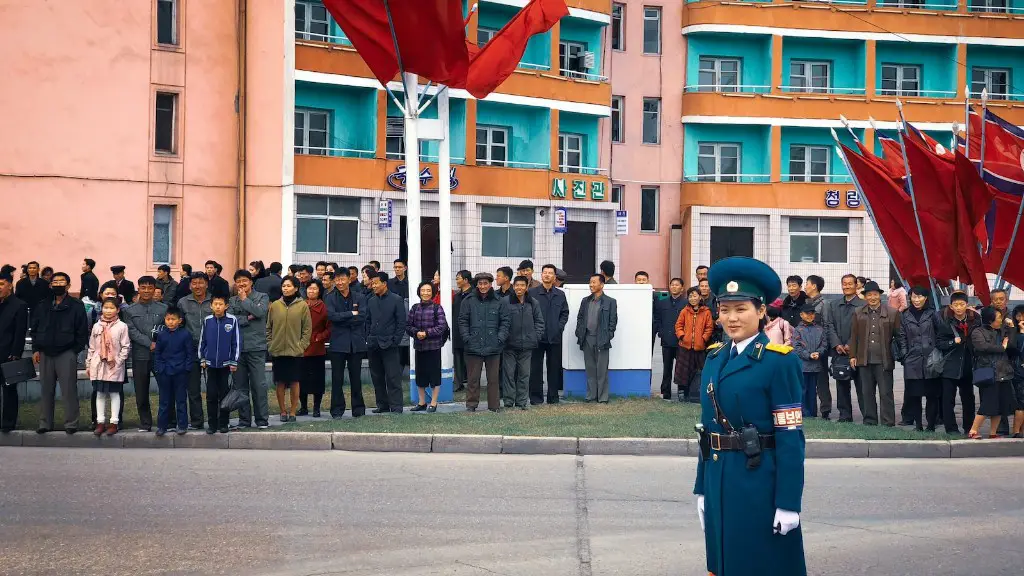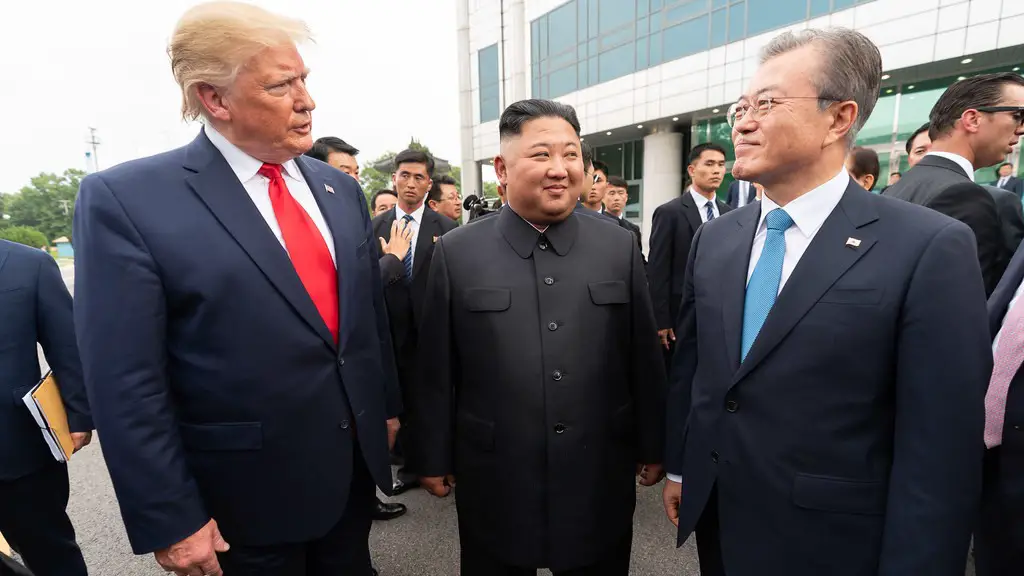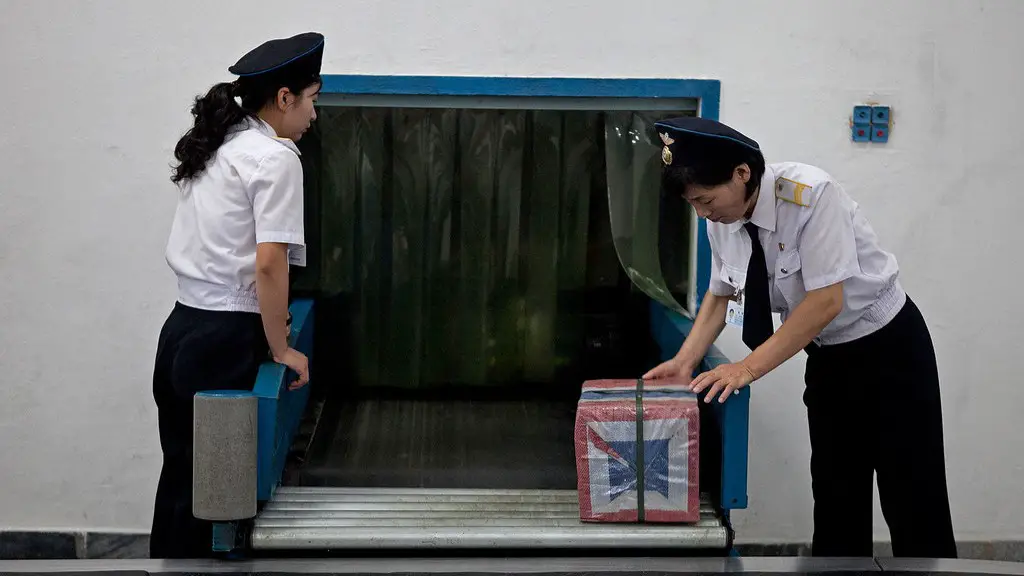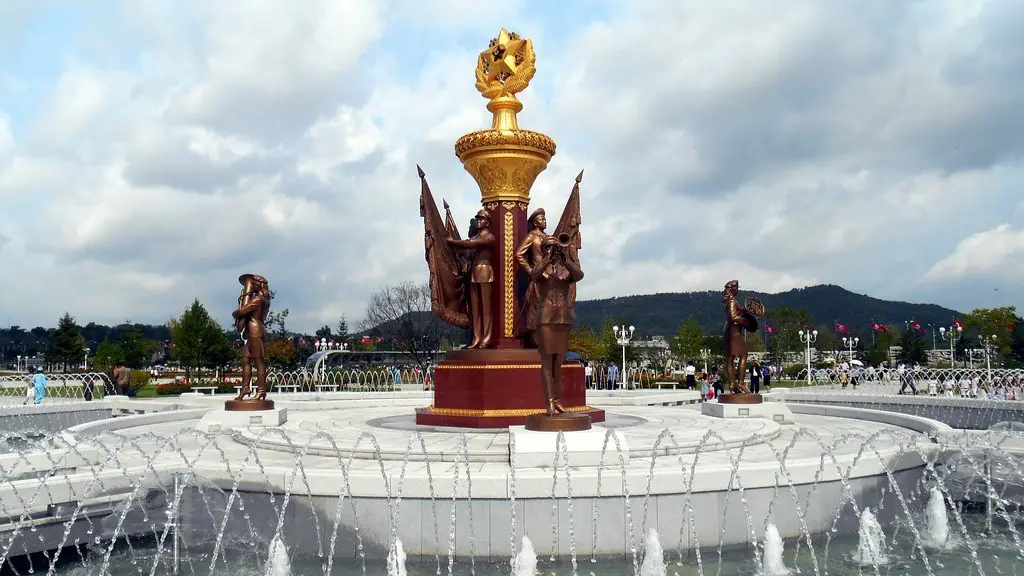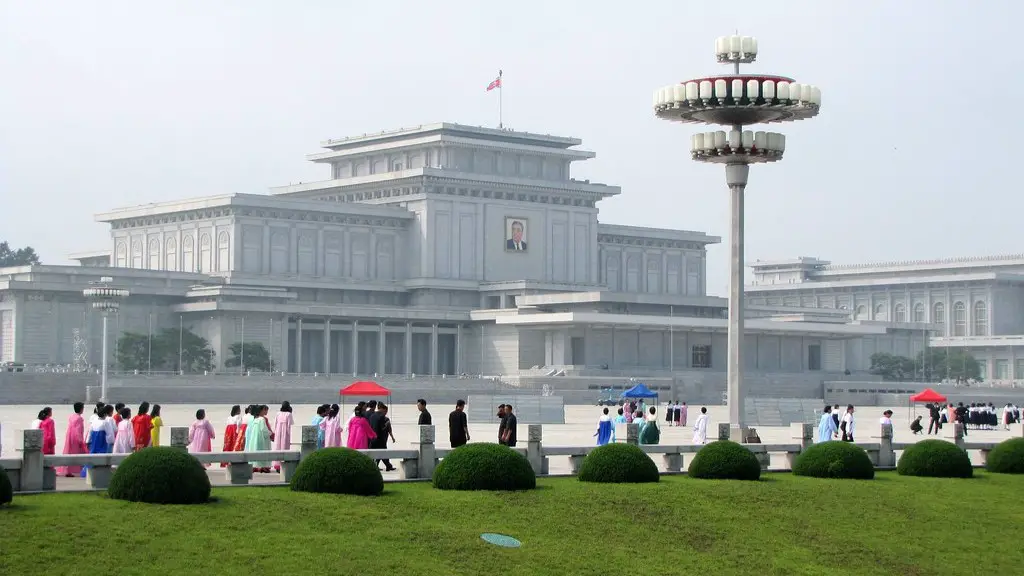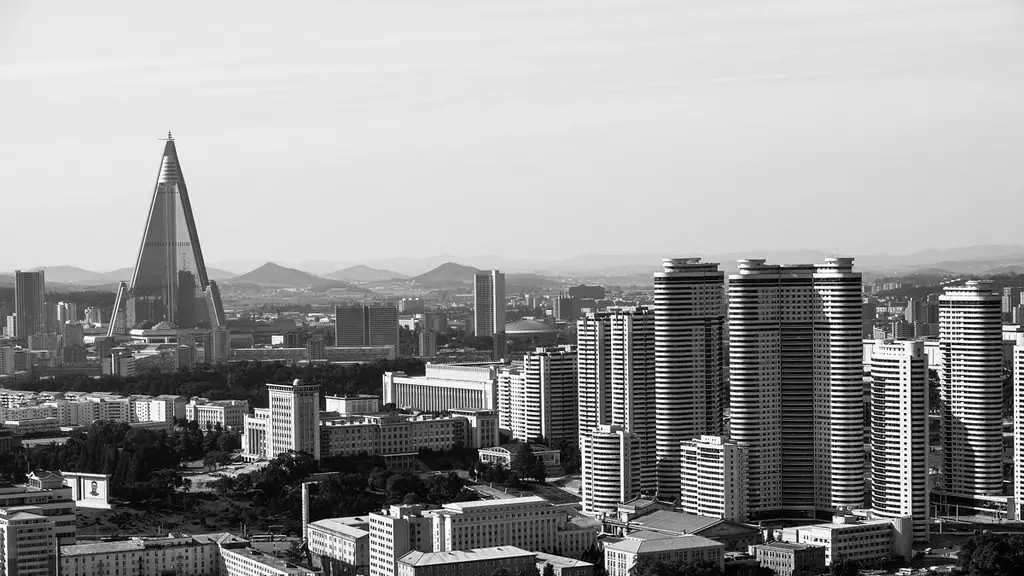A Historical Perspective Of Korea’s Divisions
The Korean peninsula has been divided since 1945, after World War II. In 1950, a border was established by the United Nations between North and South Korea to mark the end of the Korean War. The two countries have lived separately ever since, and although they share a common language, culture and history, they function and develop separately. Both countries have gone through rapid changes since then, and the two nations now present diverging political, economic and legal systems.
At the end of World War II in 1945, Korea was occupied by Soviet troops in the north and the US in the south. This eventually led to the North-South split, initiated by the creation of separate governments in 1948. Accordingly, the government of North Korea was established on the 8th of September 1948 and the government of South Korea was established on the 15th of August 1948. Following the split, and in order to avoid further escalation, the ceasefire line or 38th Parallel was established by the United Nations. The following year,1950, the Korean War began, compelling the communist forces of North Korea and China to invade the south. After three years of fighting, the war stopped with a ceasefire, with no clear winner.
Modern Day North & South Korea: comparisons and Contrasts
There are vast differences between North and South Korea. North Korea is a socialist, single-party state led by the Kim family, while South Korea is a democracy and the world’s 11th-largest economy. The economy of North Korea is heavily reliant on subsidies from China, while South Korea is a member of the OECD and home to five Fortune Global 500 multinational companies. Moreover, the South Korean economy boasts an advanced technological sector and world-renowned brands such as Samsung, Hyundai, and LG.
South Korea has an open policy of engagement, an active regional and global diplomacy, and a robust economic program that has helped the country come a long way in the last two decades. However, North Korea remains a closed, authoritarian state that has become increasingly isolated in recent years. In addition, North Korea has experienced extreme poverty and economic hardship, with over 10 million people still facing food insecurity.
Despite the stark contrast in the economic and political situations between North and South Korea, the North still appears to be in the spotlight when it comes to foreign affairs. While North Korea pursues nuclear development, South Korea remains an active ally of the international community, hosting key US military forces and remaining committed to its non-nuclear policy.
How Has North Korea Impacted South Korea?
North Korea has had an undeniable impact on South Korea since the countries have separated. North Korea has been a major concern for South Korea since the 1950s, and the countries’ relationship is still a matter of critical interest in the modern world. South Korea is keen to develop diplomatic and economic ties with North Korea in order to improve the economic condition of the peninsula, while North Korea remains focused on developing its nuclear weapons capability.
In light of the nuclear weapon tests carried out by North Korea, various states have issued a number of economic sanctions in an attempt to constrain its actions. South Korea has not been immune to the sanctions and has experienced some severe economic consequences that have resulted in a period of economic stagnation. In addition, the long-standing tensions between the two countries has had a psychological effect on citizens of the region, with many South Koreans being of the opinion that North Korea is an unpredictable and dangerous state.
Despite the significant tensions between the two nations, some opportunities for cooperation have arisen in recent years. Examples include South Korea’s support for North Korea’s participation in the 2018 Winter Olympic Games, and interpersonal exchanges for solidarity between citizens of both countries. Furthermore, in 2018, South Korea and North Korea have held their first summit since 2007, signifying a possible start to the path of reconciliation and peace.
Would The Reunification Of Korea Benefit Both Countries Economically?
The reunification of Korea is an idea that has been discussed among both North and South Koreans, while some economic experts have attempted to estimate the potential economic benefits of a reunified Korea.
Suppose reunification were to happen, some experts estimate that the economic benefits of the reunification could be huge. Studies conducted by the Bank of Korea suggest that would reunification would bring economic benefit to both countries, with the overall estimated economic gains amounting to roughly 3,278 trillion won or approximately 3 trillion US dollars.
Reunification is said to bring about an extended division of labor and specialization, with the South bringing its capital and technology and the North contributing its land, labor and other resources. As a result, a unified Korea is expected to offer an enhanced competitiveness in the global economy.
Furthermore, the reunification of Korea could lead to the emergence of a unified market with a population of 70 million people, providing more opportunities for the goods, services, and capital to flow more freely. This, in turn, could allow for an improved resource allocation, higher efficiency, lower resource cost and ultimately, a better standard of living for all Korean citizens.
Economic Challenges a Reunified Korea Would Face
Although it is said that reunification of Korea would bring tremendous economic benefits, the challenges and difficulties of the process should not be overlooked. The economic challenges that a reunified Korea would face could include an increase of unemployment, particularly in the North due to its subsistence economy and lack of modern technology. Moreover, the reunification of Korea could bring burdensome, poverty-alleviation cost to the national budget.
Furthermore, the transition period between separate states to a unified state is expected to be challenging. It is expected that it would be difficult to reconcile the two extreme economic systems; one communist, the other capitalist. In addition, Korea has to overcome the deep-rooted distrust of the North, which has been fuelled by decades of political strife.
Perception of Reunification of Korea in the Worldwide Context
Korea’s relation in the worldwide context has also been a subject of discussion and opinion. Many countries see reunification as a win-win situation, and some governments have publicly expressed a hope for a unified Korea. While there are advantages for a reunified Korea, the US, in particular, has been providing critical support for South Korea, which could be disrupted and weakened if both North and South Korea were to become unified. In that case, South Korea could become economically dependent on North Korea and lose its leverage in the region.
Overall, a reunified Korea carries a variety of potential outcomes. It may bring economic benefits to the region and be welcomed by many in the international community. Yet, pieces of the puzzle must fit together to form a strong unified state; this includes addressing the mistrust between North and South, finding a way to resolve economic discrepancies, and finally establishing a sound government.
The Impact of the United Nations in Preserving Peace in the Korean Peninsula
The United Nations has a key role in preserving peace and security on the Korean Peninsula. The UN has remained a key mediator between two Koreas in its efforts to secure peace and stability in the area. This was highlighted by the armistice that was signed in 1953 between North and South Korea, published with the help of the UN’s mediator roles.
Since then, the UN has maintained a key focus on the Korean Peninsula. From 1989 to 1991, the UN Security Council convened nine meetings relating to developments in the Korean Peninsula, according toUN records. Since the 1990s, the UN has continued to work with North and South Korea to ensure international peace and security.
The UN is deeply concerned about the security threats posed by North Korea’s nuclear and ballistic missile programs, which have concerned the international community and led to a series of international sanctions being imposed since 2006, United Nations diplomatic efforts have been one factor that has prevented the situation from deteriorating any further.
The UN Human Rights Council (UNHRC) has been active in developing policy concerning North Korea. In 2014, the UNHRC commissioner opened a formal investigation into North Korea to examine the systematic, widespread and gross human rights violations committed in the country. The subsequent report, which was issued in February of 2016, laid out a roadmap for a transition away from a system of government founded on repression.
Conclusion
North Korea separated from South Korea in 1945 after WWII and the Korean War. Since then, the two countries have developed separately and have had a troubled relationship. South Korea has an open, democratic system, while North Korea is a closed, authoritarian state with a heavy reliance on China for subsidies. There have been talks about the reunification of Korea which could bring both North and South Korea substantial economic benefits, but reunification will also pose many challenges. The UN has played a key role in mediating between North and South Korea in its efforts to secure peace on the peninsula.
